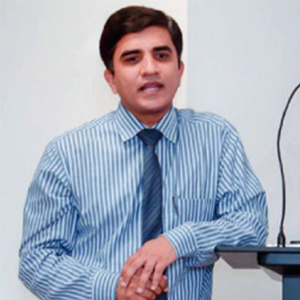The Evolution of Career Options in Healthcare Sector
 Growing trends in the higher education have created vast options for the students to choose the best course to pursue. Healthcare is not an exception to this. Students can pursue courses after their graduation and some courses are available soon after their plus 2. The need of specialized service in every segment of healthcare is due to increasing concern to maintain the standards and deliver better service experience this, in turn, requires a skill and thereby education backed with practical training is the need of the hour.
Growing trends in the higher education have created vast options for the students to choose the best course to pursue. Healthcare is not an exception to this. Students can pursue courses after their graduation and some courses are available soon after their plus 2. The need of specialized service in every segment of healthcare is due to increasing concern to maintain the standards and deliver better service experience this, in turn, requires a skill and thereby education backed with practical training is the need of the hour.
Higher education in Specialty healthcare and related fields:
Many times the students who do not fare well in their exams leave themselves disappointed thinking that their future is completely dependent on their marks card. Gone are the days where one needs to become a doctor or an engineer to have a successful career. There are options for courses such as perfusionist, cath lab technicians, embryologist and many more who work very closely with the doctors. Apart from this, there are also different professional courses which indirectly help run the healthcare industry.
a) Perfusionist plays a very important role along with cardio thoracic surgeons in the OT. A perfusionist uses the cardiopulmonary bypass machine during cardiac surgery and other surgeries that require a cardiopulmonary bypass to manage the patients. Earlier the perfusionist's job was done by assistant surgeons, then later by theatre assistants, eventually the advancement of Oxygenators in the heart-lung machine the need for trained hands became a necessity for the continuous monitoring and maintenance of desired Oxygen and carbon dioxide level, thus the profession evolved. There are BSc and MSc courses offered in perfusion technology.
b) Cath lab technicians majorly assist the interventional cardiologists in Angiograms and Angioplasties. Cath lab technicians usually read and interpret test procedures and explain the procedures to patients.
c) Embryologists have a major role in the IVF procedures. The results of an IVF procedure are majorly dependant on the embryologists. Embryologists are responsible for retrieving eggs, assisting with in vitro fertilization, maintaining clinical records and running tests on eggs. Embryologists often work in positions involving either clinical practice or research.
d) There are growing demands for clinical pharmacologists in small and large hospitals. The main objective is to promote the safety of prescription, maximize the drug effects and minimize the side effects. Clinical pharmacology connects the gap between medical practice and laboratory science. Clinical Pharmacologists take care of prescription audits, they look for the right dose, mode of administration and many more, and tabulate the errors and present it to the clinicians, administration team and nursing staff. Apart from this, they can hold training for the concerned staff in order to avoid such errors.
e) Medical transcript writing is gaining a lot of popularity these days. Medical transcripts assist the doctors and nurses in systematically writing down the voice records, dictation of doctors/nurses thus reducing the time and paperwork for doctors. These records are made available for patients and doctors through hospital information system or portals through which they can directly access.
Apart from the above branches which are directly linked to patient care and treatment there are many other professions which were not required in the earlier times in healthcare and were known to exist in other product industries are now widely evolving in healthcare too, we are throwing light at few of them below.
- Hospital administrators keep the hospital running efficiently and lead the nurses, doctors and other professionals who work there. Courses in hospital administration are generally taken as a full undergraduate or graduate degree program. Hospital administrators require a rigorous theory model of education backed with efficient practical training. Apart from this one needs to possess excellent leadership qualities to become an efficient Hospital Administrator.
- Business Analyst is someone who analyses an organization or business domain and documents its business or processes or systems, assessing the business model or its integration with technology. In healthcare industry, they compile various MIS reports and simplify it to administrators to understand the trends of business. This helps to know the positioning of the organization in the market based on which marketing and operational strategies can be designed to improve time to time.
- Digital marketing professionals, healthcare are not an exception for the need for digital marketing experts. Over the last few years, we have seen a boom period of digital marketing. It has started infusing in almost every industry. While it was possible earlier to do things without digital marketing and go for more traditional methods, today, however, healthcare digital marketing is indispensable.
Earlier patient treatment process would revolve around the doctor, patient, and a nurse but now the need for better standard of care, minimise complications, ensure shorter hospital stay and increase comfort to patient there is evolution of many opportunities in higher education. Proper career counseling and guidance can help students choose best-suited stream for them.
Neeraj Lal
The VP and Cluster Head at Rainbow Children's Hospitals, Neeraj Lal holds 17 years of experience in Healthcare Management. Studied Masters of Hospital Administration ( MHA) from TISS Mumbai, he specializes in Healthcare Operations Excellence, P & L, Business Development, Strategy & Quality. He is an approved Surveyor for ISQua's International Accreditation Programme (IAP).

